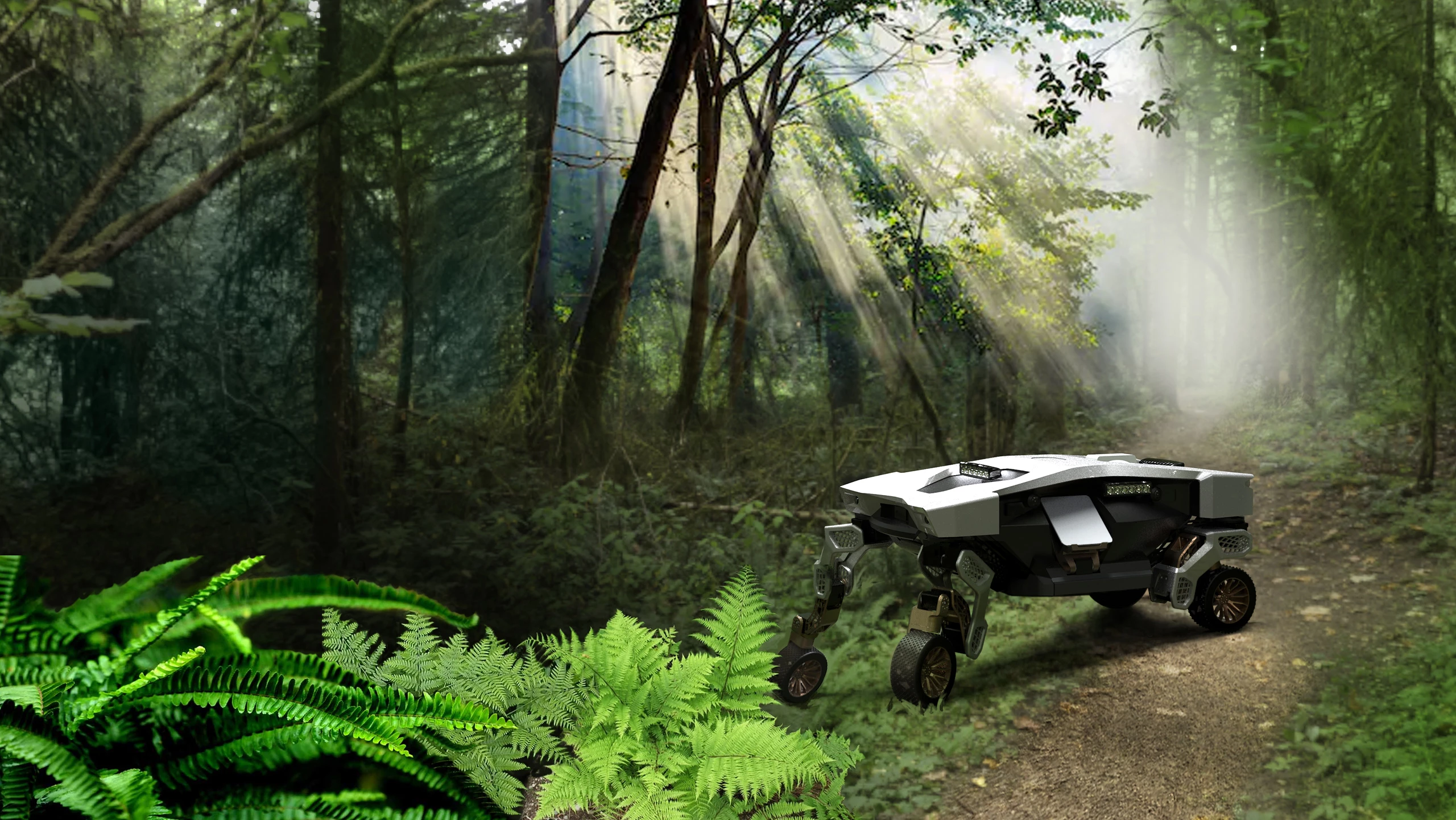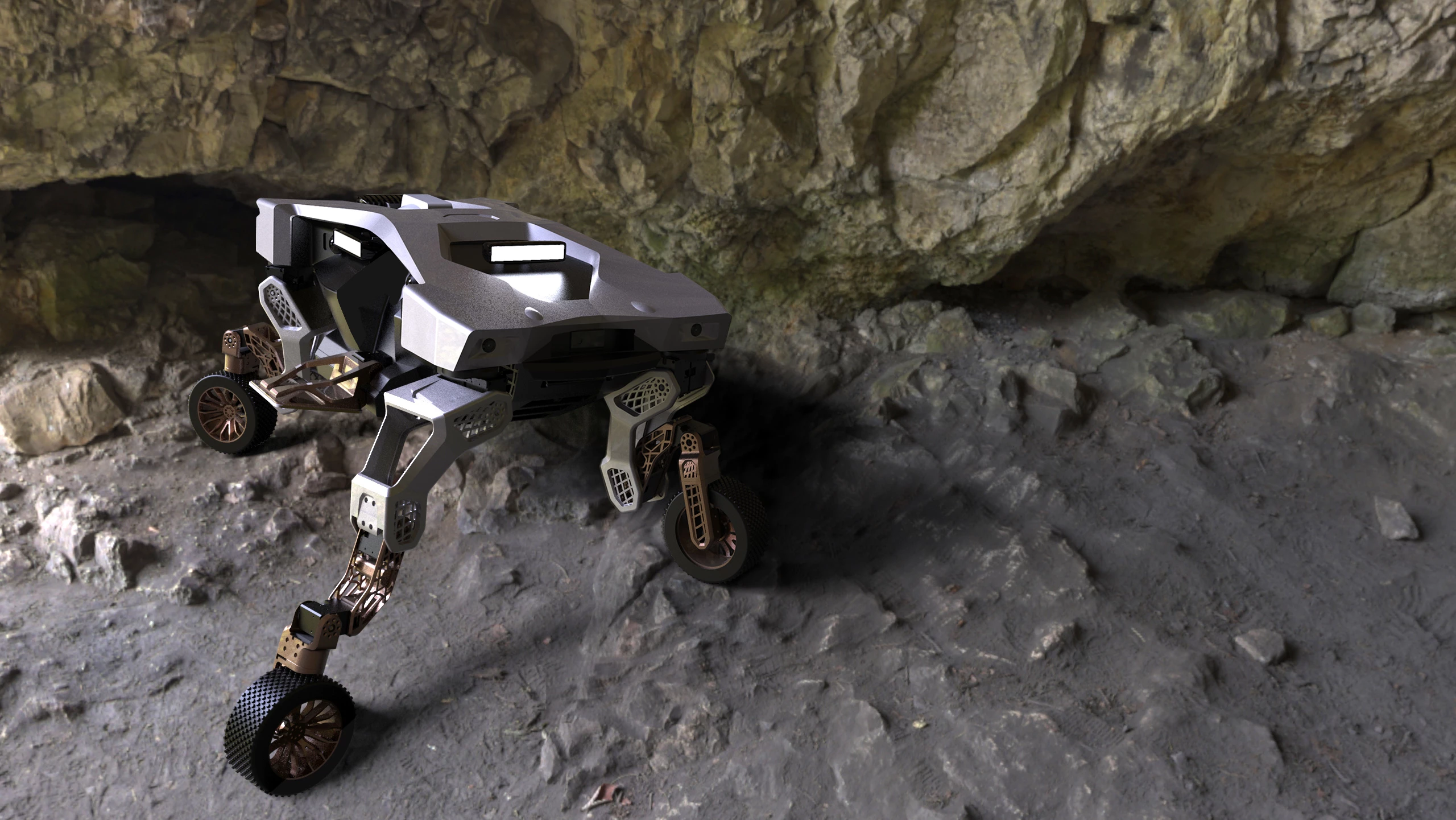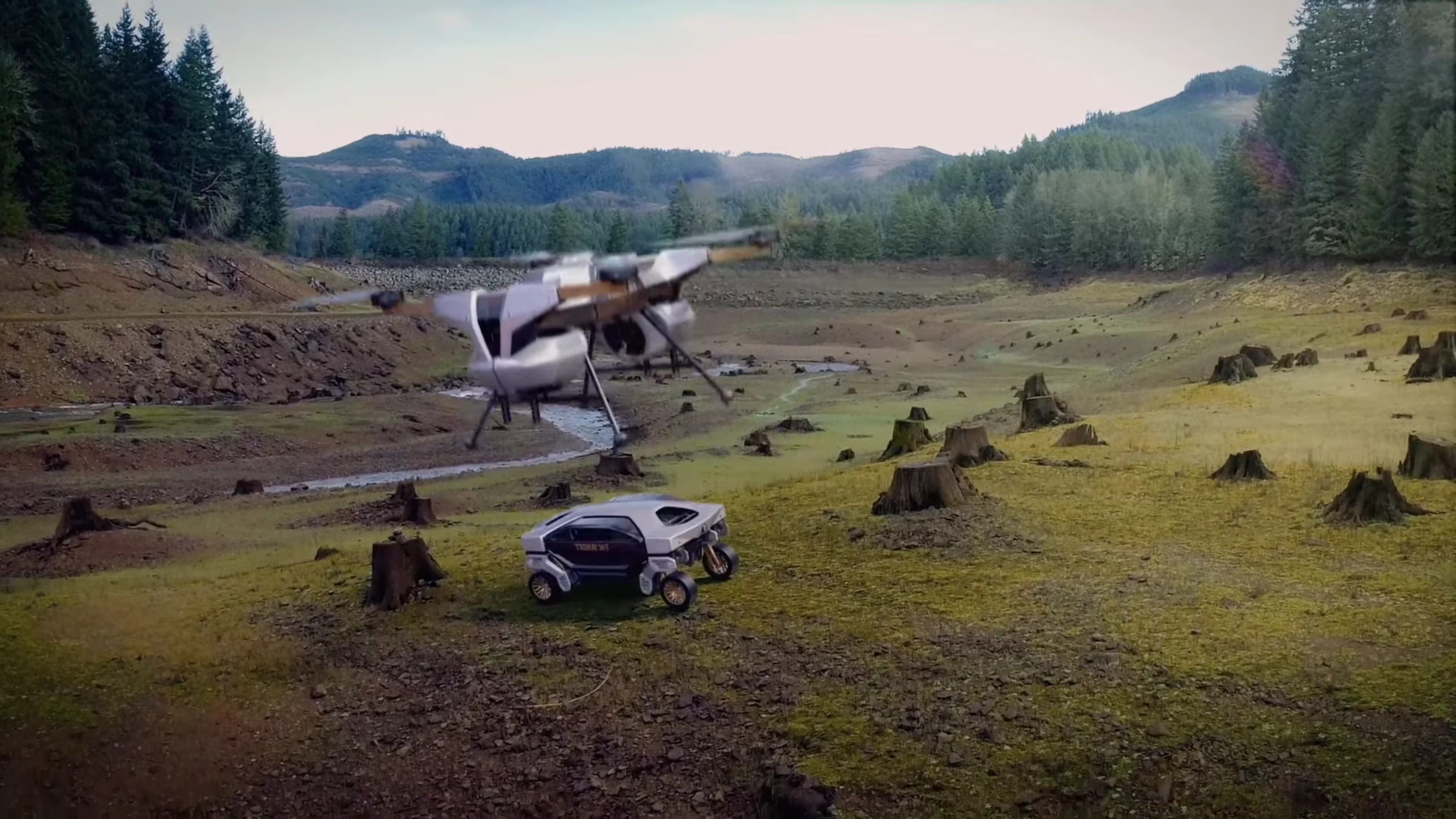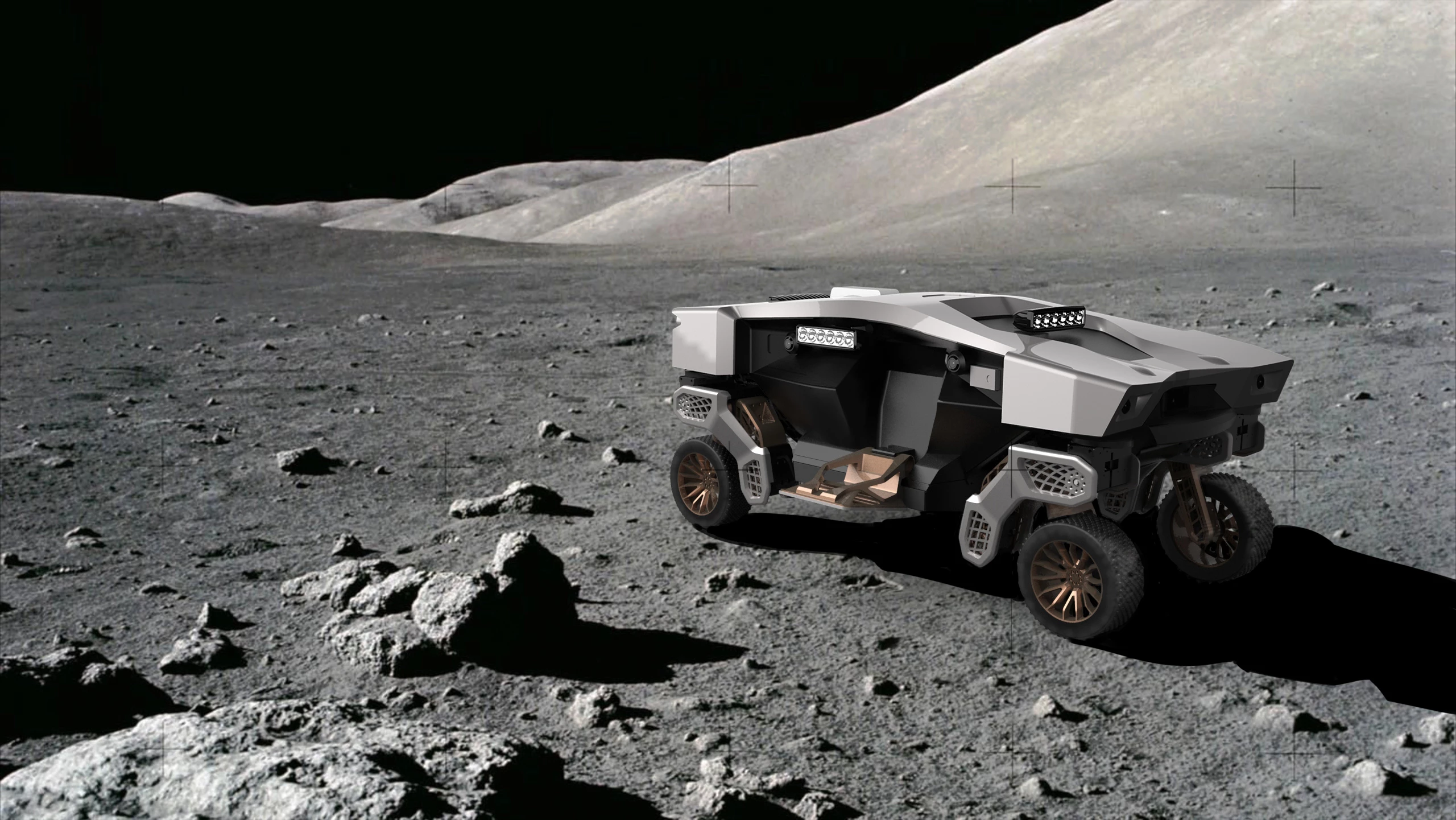We see a lot of wacky concept vehicles, but few as nutty as Hyundai's Ultimate Utility Vehicles with their robotic stilt legs. And the company is dead serious about building them, too, with a new development and test facility to be built in Montana.
The New Horizons Studio will get around US$20 million over the next five years, and will employ about 50 people. Located in Montana State University's Innovation Campus in Bozeman, Montana, it'll be "a unit focused on the development of Ultimate Mobility Vehicles" – starting out with two projects, inspired by the TIGER autonomous vehicle and the Elevate crewed UMV, the latter of which will start out as a two-seater.
The goal here is to build the most unstoppable rough-terrain vehicles on the market. As such, these things will have four electrically driven wheels, each mounted on bizarre articulating legs. These powerful robotic legs can bend or swivel at the hip, bend again at the knee and ankle, and fully rotate the wheels before they touch down as well. They're capable of lifting these vehicles or lowering them, stepping over things, stepping up and down off sheer ledges, and precisely placing the wheels on the toughest of driving surfaces. Check out the original "Project Elevate" video below.
Part of the challenge here will be developing the sensor suite and control systems that can figure out what to do with these six degrees of freedom at each corner, and turn those decisions into a smooth and usable driving experience.
First cab off the rank will be the TIGER-inspired autonomous platform. This smallish machine is conceived as a go-anywhere platform that could prove useful in rural logistics, construction, mining and even space-based operations. When the TIGER concept was first revealed, Hyundai suggested it could be connected to the bottom of an eVTOL-style aircraft, to be transported into the thick of a tough area, dropped off and sent on its way to finish the mission before being picked up again. Take a look in the video below.
The second project will be the two-seat crewed Elevate version, and Hyundai sees this very much as a disaster relief machine for getting into devastated areas, where other vehicles fear to tread, and bringing injured people back out.
The 12,000 to 15,000-sq-ft (1,100 to 1,400-sq-m) Montana facility, says Hyundai, will put it directly in contact with researchers and professors in relevant fields, while also being close to a treasure trove of off-road trails and mountainous terrain, where these vehicles can be tested under all sorts of conditions. Ground will be broken on the new building next month, with a (presumably temporary) R&D office opening in the Innovation Campus next month as well.
Source: Hyundai












